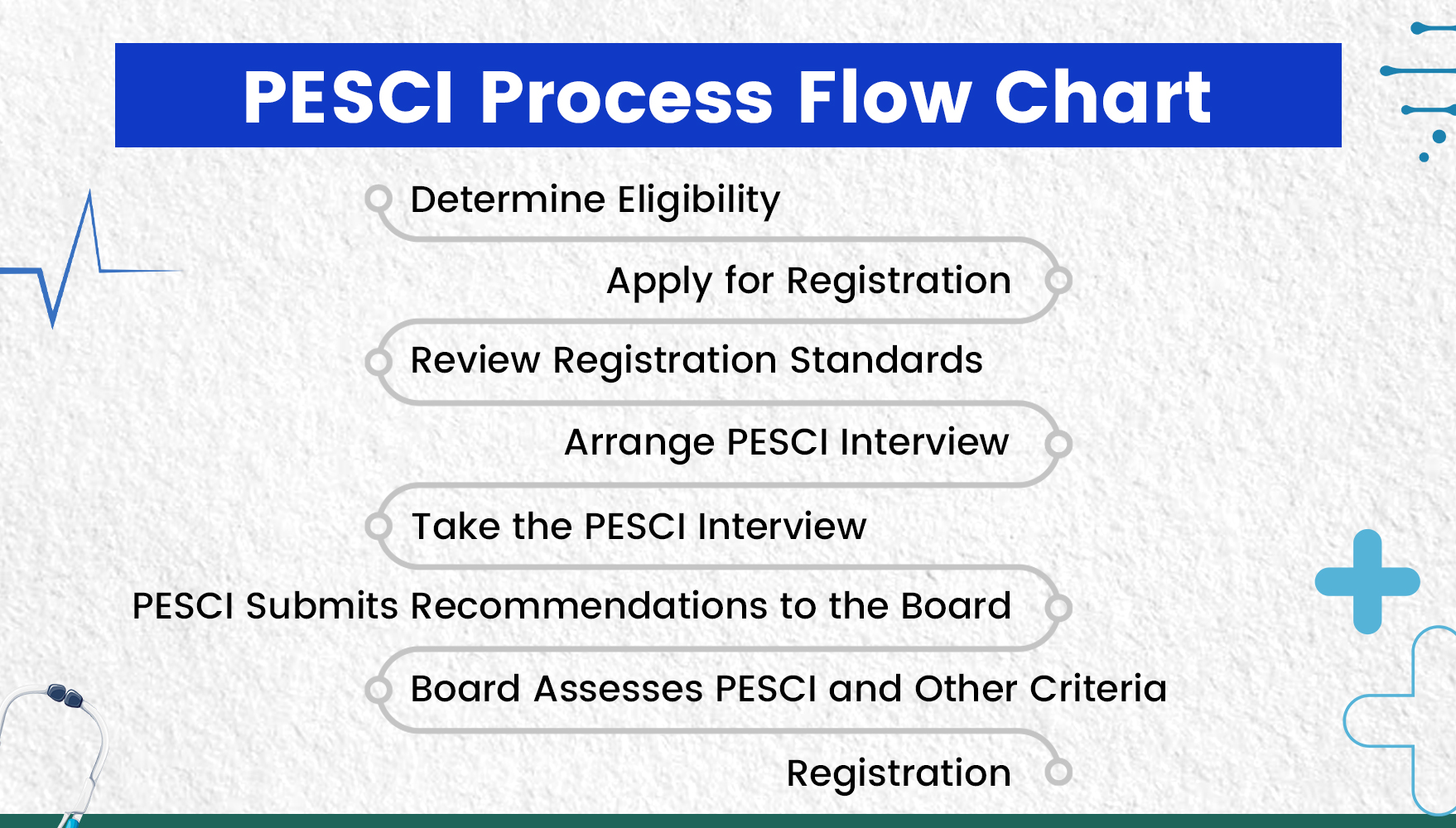
What is PESCI?
The Pre-Employment Structured Clinical Interview (PESCI) objectively assesses a medical professional’s clinical experience, knowledge, and skills to determine if they are suitable for a specific position in Australia. Conducted by a panel of experienced healthcare professionals, it is designed to evaluate whether an applicant is ready to practise safely and competently in their proposed role.
PESCI is especially important for International Medical Graduates (IMGs) applying for limited or provisional registration to practise in Australia. The assessment includes clinical case scenarios and competency-based questions to evaluate your ability to adapt to Australia’s healthcare setting, patient care standards, and clinical demands.
Who Needs to Take PESCI?
- You are applying for limited or provisional registration in general practice or other clinical positions.
- The role you're applying for involves working in rural, remote, or high-risk areas, where the healthcare demands may be more significant.
- Your qualifications come from a country outside Australia or New Zealand.
Note: Those in the specialist pathway are usually assessed by the relevant specialist medical college and may not require a PESCI.
When Should You Arrange a PESCI?
You should arrange for PESCI only after you have met the Board’s registration standards for your type of registration. You should apply for registration first so the Board can assess your eligibility before you go through PESCI.
For example, suppose you are applying for limited registration for an area of need in general practice. In that case, you must demonstrate at least three years of equivalent experience in general practice or primary care. The Medical Board advises that you complete your registration application (except for the PESCI result) to ensure you meet the eligibility requirements before arranging your PESCI interview.
PESCI Providers
PESCI is conducted by accredited providers who must be approved by the Australian Medical Council (AMC). Here are the main PESCI providers:
- Australian College of Rural and Remote Medicine (ACRRM)
- Institute of Medical Education (METC Institute)
- Royal Australian College of General Practitioners (RACGP)
These providers offer PESCI assessments specific to the role you’re applying for, and the interview outcomes are shared with you and the Medical Board.
How is PESCI Conducted?
PESCI consists of a structured clinical interview that uses a series of clinical case scenarios. During the interview, a panel of medical experts will assess your:
- Clinical knowledge and decision-making
- Communication skills with patients and colleagues
- Ability to adapt to the Australian healthcare environment
- Suitability for the specific position you're applying for, considering the role's location, supervision, and support.
The interview is typically conducted by a panel of at least three members, including two registered medical practitioners and possibly a layperson or another healthcare professional. These assessors will evaluate your competency to work in the clinical position in question.
PESCI Fees
The cost of the Pre-Employment Structured Clinical Interview (PESCI) can vary depending on the provider, but the average fees are as follows:
Item | Amount | Payment Due |
Pre-Employment Structured Clinical Interview | $2495 | Upon application |
It's important to note that fees may vary slightly depending on the accredited PESCI provider, such as the RACGP, ACRRM, or METC Institute. Always check with the provider for the most up-to-date pricing and payment requirements.
Recommendations and Results
Once the interview is completed, the PESCI provider submits their report to you and the Medical Board of Australia. The report includes:
- A recommendation on whether you're suitable for the position.
- Advice on the level of supervision you may need.
- Any suggestions for additional training or education that might enhance your suitability for the role.
It's important to note that while the PESCI panel’s recommendations heavily guide the Board, the medical board makes the final decision on your registration. They may also consider other factors, such as your recency of practice, criminal history, and English language skills.
What if the PESCI Result is Unsuccessful?
An unsuccessful PESCI result does not necessarily mean the end of your journey. The recommendations are specific to the role you were interviewed for, meaning that while you may not be suitable for one position, you might be better suited for another. If so, you may need to arrange another PESCI for a different position.
Sometimes, the Board may request additional training or supervision to help you meet the required standards before reapplying.
Final Thoughts
The Pre-Employment Structured Clinical Interview (PESCI) is essential for International Medical Graduates looking to practise in Australia. It ensures that medical professionals have the clinical skills and attributes necessary for the position they are applying for and, ultimately, the safety of the Australian public.
To successfully go through the PESCI process:
- Ensure you meet the eligibility requirements for registration.
- Be familiar with the Australian healthcare system and its clinical guidelines.
- Prepare for clinical case scenarios and communication with patients.
- Take note of the PESCI provider recommendations to improve your chances of successful registration.
By understanding what PESCI involves and preparing accordingly, you’ll be one step closer to practising medicine in Australia.
For more information on becoming a doctor in Australia, complete this form and get one-on-one counselling with the expert.